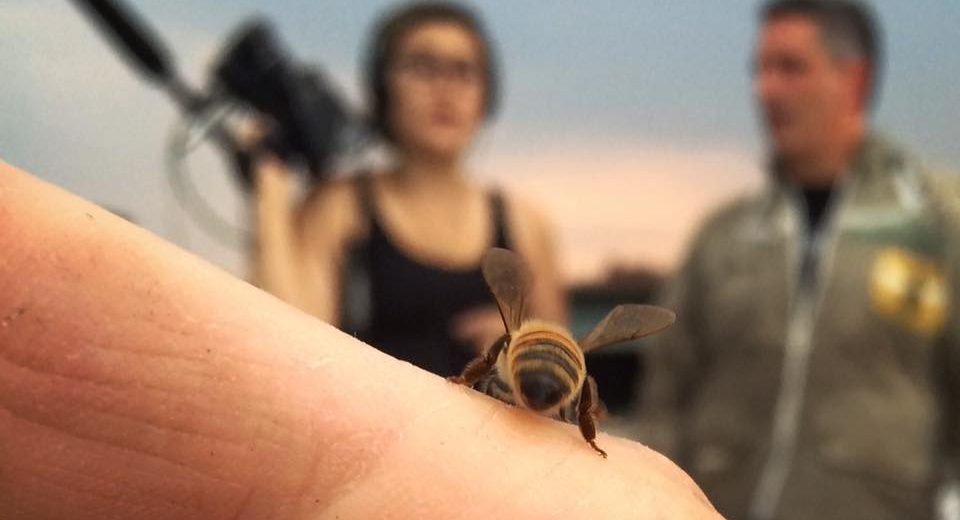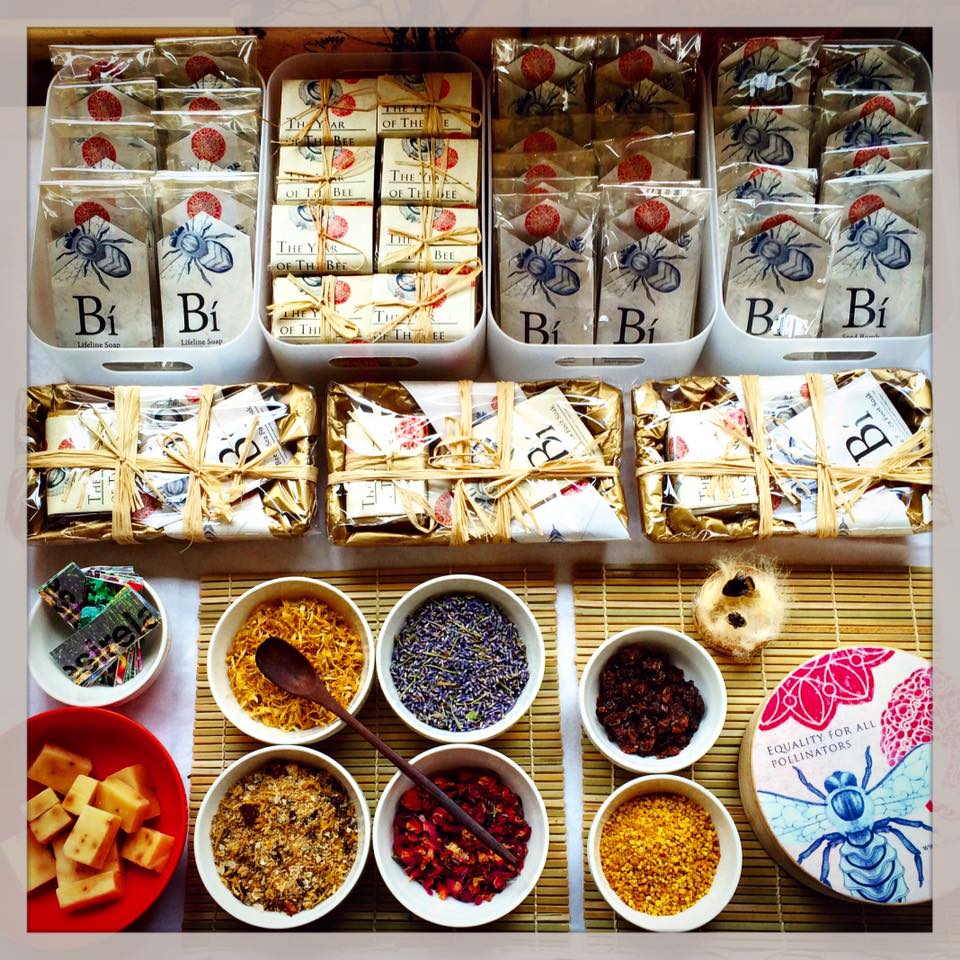Why Bees?
Healthy bees = Healthy humans Beekeeping is a non-invasive form of urban agriculture that enhances biodiversity and health. Bees only improve the landscape they harvest upon. The fact that our bee population is under threat has triggered widespread public awareness of the critical role bees and pollination play in our food system and the economy.
Bees and the Urban Environment Bees thrive in the warmer temperatures of the urban environment where there are higher levels of biodiversity and less pesticide use. Interest in urban beekeeping is on the rise. The highest levels of biodiversity are found adjacent to railway tracks and roads and bees flourish on waste ground trapped by urban infrastructure. Because bees prefer to live above ground and as high as twenty stories up, shelters for ‘wild’ hives could be seamlessly retrofitted into trees, lighting and telephone posts, rooftops and bridges out of harms way.
Local Demand Public interest in urban beekeeping is escalating. The National Biodiversity Data Centre have just released their ‘All Ireland Pollinator Plan’ to protect our declining pollinator populations. Collaborating with these agencies to establish an urban beekeeping could be used to build local capacity, environmental awareness and opening the door to innovative areas of enterprise and employment.
The Bee Colony as ‘superorganism:’ an exemplar organizational model Bees live lightly. They do not recognize boundaries or ownership, yet always improve the landscape they forage in. They are industrious creatures with a strong social ethic. Their commitment to the common objectives of the colony and collective decision making processes illustrate the ecological, social, economic and institutional principals of sustainable development and the new ‘Commons.’
High product development potential – specializing in health Bee products, honey, pollen, propolis, venom, wax, have been used in healthcare products for millenia. Recently there is a resurgence of interest in bee products within the scientific community based on promising discoveries (Examples: Bee venom as a treatment for HIV, propolis as a multispectral antibiotic to combat MRSA) and the high potential for innovation.
Desireland is currently exploring the health enhancing properties of bee products in the development of its Bí personal care range and intends to expand this offering in 2016 with ‘Bí Home,’ a range of home care products which aims to create employment in Dublin’s Northwest Inner city Area.
 Desireland
Desireland

